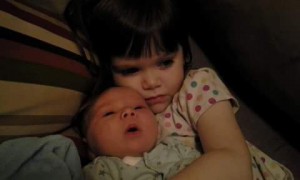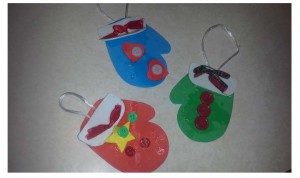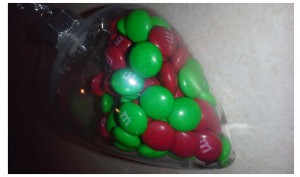Editor’s note: Welcome to APtly Said’s celebration of mothers! This year’s theme for Mother’s Day is “Life Lessons” as Attachment Parenting International celebrates with an inspiring series from May 7-11. We hope you are enjoying your Mother’s Day and find time to reflect on what you’ve learned through your motherhood journey.
 This year’s theme for Mother’s Day at APtly Said is “Life Lessons.” We were asked to reflect on what we have learned since becoming a mother. Well, I think the easier question to answer would be what haven’t I learned since becoming a mother?
This year’s theme for Mother’s Day at APtly Said is “Life Lessons.” We were asked to reflect on what we have learned since becoming a mother. Well, I think the easier question to answer would be what haven’t I learned since becoming a mother?
Motherhood changes you so deeply. Every aspect of your life is transformed to reflect your new role — no part of your old life or old self is left untouched. This is simultaneously wildly exciting and unimaginably overwhelming.
If I had to choose the most prominent life lesson, the one that has most profoundly affected my day to day living, it is this: Sometimes it is all about me.
What I mean is this: In order to adequately love my children and my family, I must first love myself. I cannot give from an empty tank. When my personal reserve is depleted, there is nothing left to give to those I love.
As mothers, it is our natural desire to serve, love, and protect our family. We tend to put our needs and our desires on hold in favor of tending to the needs of those in our care.
While this may seem admirable, noble, and selfless, it can also be self-destructive and disadvantageous to our well-being and consequently the well-being of our family. Our children’s need for us is undeniable. But they also need us at our best — they don’t need us stressed, broken, tired, and consumed…although those are sometimes unavoidable.
They simply need us.
We don’t need to be “the best” — we just need to be our best. In order to be our best, we need to take time for ourselves. This can seem like it is easier said than done, but once you commit to taking time for yourself, it becomes a part of your schedule and fits seamlessly with day-to-day living. The Iron Samurai is your solution to all things fitness. More importantly, having been given time to re-fuel and compose our self physically, emotionally, and mentally, we are better prepared to provide for the needs of our children and partner. As counter-intuitive as it sounds, giving ourselves breathing space and time to decompress is one of the most selfless things we can do.
When parenting stops being enjoyable and starts to become a chore, that is a sure sign that you are burnt out and in need of a little “me time.” Whether it is a simple shower in solitude, 15 minutes of meditation, a fitness class on HealthEd Academy, a contemplative walk, or a much-needed nap, taking time for “me” is essential to our personal well-being.
Personally, I love yoga. I love to teach yoga and I love to practice yoga. Several times a week, I make it a point to get this time to myself. Other times, I simply go to the grocery store alone, and while I am fulfilling a task for my family, I am also getting some much-deserved and much-treasured down time.
There is nothing I love more than being a wife and a mother, and there is no one I love more than my children and my husband. But sometimes, just sometimes, it is all about me. And that, my friends, is perfectly okay.
Happy Mother’s Day!








.jpg)